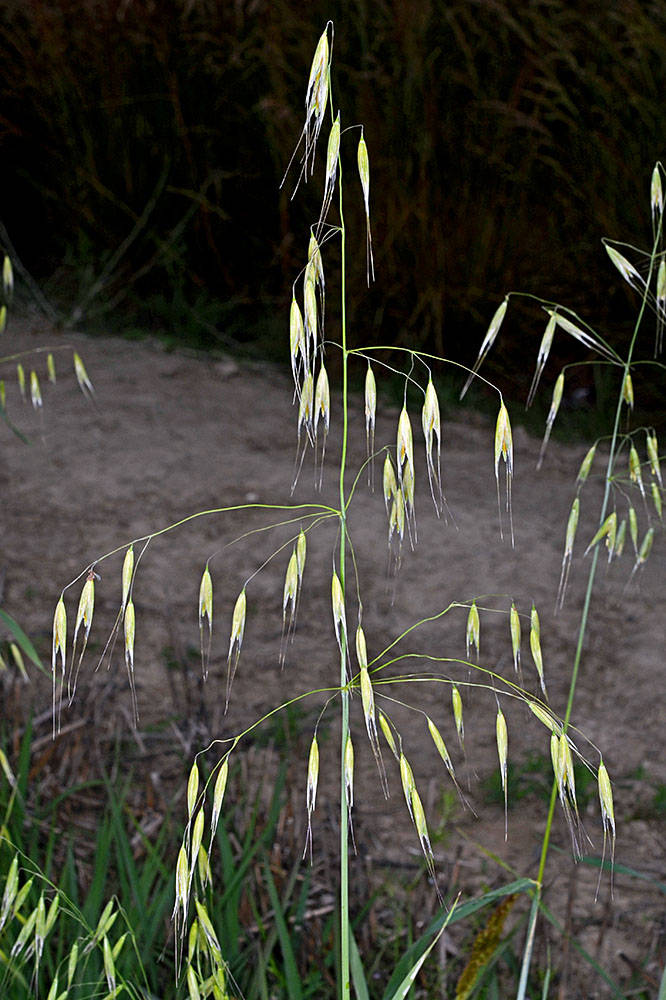Avena fatua
wild oats
blades 10– 45 cm × 3–15(25) mm; flat or occasionally involute, scabrous.
7–40 × 6–12 cm;
branches spreading;
disarticulation beneath each floret.
18– 32 mm with 2–3(5) florets.
18–32 mm with 9–11 veins; awnless.
8–160 cm tall.
hairs to 25% as long as the lemmas.
14–22 mm with 5–9 veins; leathery; thin and membranous at the tip, densely pubescent below mid-length, sometimes sparsely pubescent or glabrous;
tips bifid;
teeth 0.3–1.5 mm but lacking long bristle-like tips;
lemma awns 23–42 mm, arising in the middle 33% of the lemma backs.
about 3 mm.
=42.
Avena fatua
Disturbed areas, roadsides, grain fields, upland grasslands. 0–1100m. BR, BW, CR, Est, Lava, Sisk, WV. CA, ID, NV, WA; throughout North America; worldwide. Exotic.
Avena fatua invades upland grasslands, displacing native prairie species. It also can be a serious weed in grain crops. It may be the ancestor of cultivated A. sativa. Avena fatua × A. sativa hybrids resemble A. sativa but lack lobes on the wings of the lodicules and may have an awn on the lowest lemma.
Barbara Wilson, Richard Brainerd, Nick Otting
- Local floras:
BC,
CA,
OR,
WA
- Local Web sites:
CalFlora,
CalPhotos,
Flora NW,
PNW Herbaria
WildflowerSearch
iNaturalist (observations)
USDA Plants Database
- LBJ Wildflower Center
- SEINet
- Plants of the World Online
- Encyclopedia of Life
- Wikipedia
- Google Image Search



